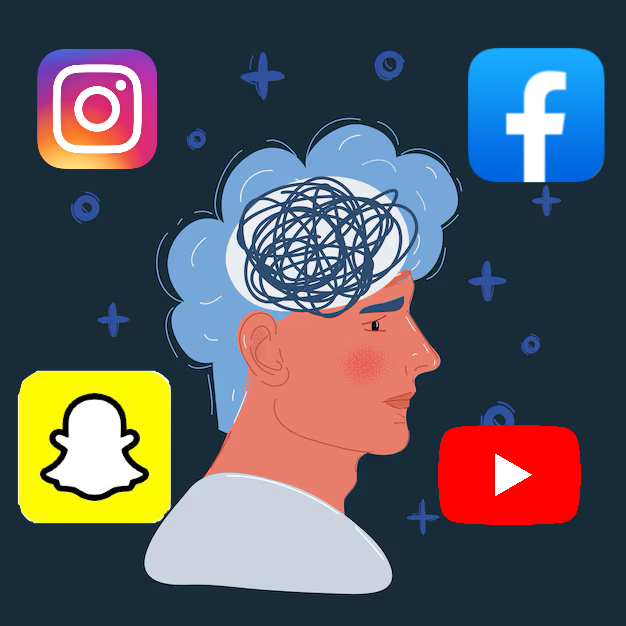Do you have social media? Do you use it daily? Those answers are probably yes. Yet have you noticed that your favorite apps have been slightly ‘different’ lately? The answer may be no if you are as obliviously attached to your phone as most people today. If your answer was yes, then you have probably recognized how the fast-paced evolution of social media has changed our favorite networks in the past few years. With the never-ending scrolling from the help of our perfectly curated algorithm, the influx of online consumerism, and the ‘brain rot,’ social media doesn’t seem as personable as it once was. To account for this perception of new-age social media, we call for the ‘late-stage social media’ theory. This idea refers to the current state of social media’s evolution, characterized by algorithm-driven content, consumer culture, and the ‘chronically online.’
When polling 30 Quartz Hill High students, 60% believed that social media was more enjoyable and personable five years ago than it is now. In comparison, 40% disagreed, believing social media is more enjoyable nowadays. Whether or not you think social media has evolved for better or worse, there is no denying the evolution itself. Can you recall when you first downloaded Instagram, and your entire feed was just that of your friend’s posts? On Instagram, you may see the odd post from your friends, but it’s generally carefully curated content from the algorithm. Have you noticed the influx of AI content on your explore page? The term’ AI slop’ refers to lazy and low-quality AI-generated online content, and your phone is filled with it, whether you recognize it or not. In addition to AI content, influencer content has overtaken many of our social media feeds. Influencers via online networks were not a thing a few years ago, and now it seems like everyone is an influencer. The influx of influencers has caused an uproar in consumer culture. These influencers promote lifestyles that are heavily based on dramatic overconsumption. Videos of people putting miniature ‘backpacks’ on their Stanley water bottles and packing those backpacks with enough items that one would usually fit in their purse. Influencer videos online have become so out of touch that sometimes it’s hard to tell whether they’re satirical.
One of the most humorously detrimental effects of the modern-day internet is that of the ‘chronically online.’ A chronically online person spends an obscene amount of time online to the point where their whole personality revolves around internet culture. Being chronically online can cause mental health issues, social isolation, addictive behaviors, and a shortened attention span.
With social media’s undoubtedly changing in recent years- not everyone will agree that these changes are harmful; however, the fact that modern-day social media predominantly consists of algorithm content and overdramatized consumer culture is undeniable. Due to rapid technological advancement, the evolution of social media is fast-paced and seemingly-never ending. Our favorite apps are getting their newest updates just to seem more like another app. This current phase, and maybe one of the last stages of social media, calls for lazy and unenthused content, yet we still continue to consume our days by indulging in it.








